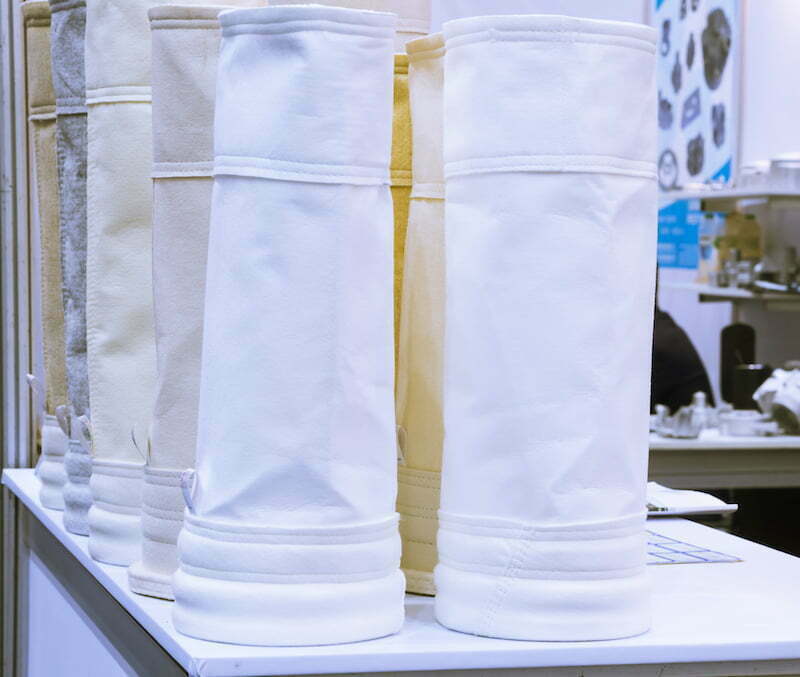The quality of a filter bag directly affects the performance of a baghouse dust collection system. Filter bag failure is not only costly and time consuming, but may also pose a safety hazard. By understanding the most common reasons why baghouse filter bags fail, you can take precautions and maximize the lifespan of your filter bags.
Baghouse Filter Bags & Abrasion
While no baghouse filter will last indefinitely, abrasion can shorten the lifespan of your filter bag. This can stem from several issues:
- filter bags rubbing against the support cages due to damaged cage wires or poor filter sizing,
- dirt-laden air hitting the filters in a concentrated spot due to poor inlet design,
- heavy shaking of the bags at the attachment points.
Poor Fit
Too often, the baghouse is simply the wrong size for the application. When a baghouse is too small, it allows excess air to pass through the filters, leading to premature clogging and failure. Even if the apparatus continues to work, it will likely perform poorly and require more frequent cleaning, which also shortens the life of the filter. Improper sizing of the inlet and dirt evacuation components can also place undue strain on bag filters causing them to fail.
Overcleaning
Problems with baghouse filters are often interconnected. When parts are poorly designed or don’t fit properly, you’ll find yourself having to clean the filter bag more often. Excess pulsing of the bag can cause microtears that will gradually expand. This is more likely to occur if you pulse the bag at high pressure. Avoid manual scrubbing, which can easily produce holes in the filter.
Overheating
Baghouse filters are made from composite fabrics, each with a different maximum thermal threshold. If the operating temperature exceeds these thresholds, the filter bag may rip, melt, or in the worst case catch fire. You can help prevent overheating by:
- ensuring that all components fit properly and are installed securely,
- operating the system within the recommended temperature and humidity,
- using the proper fuel source as recommended by the manufacturer,
- performing cleaning and maintenance and the recommended intervals.
Chemical Reactions
Chemical incompatibility between the gas stream and the materials used in the filter can cause wear, corrosion, and other damage to your filter and dust collection system. Changes in temperature and humidity can also alter the chemical composition of the gas stream, creating problems that didn’t exist before. Operating your system in line with manufacturer recommendations can help you prevent chemical damage to your filters.
Moisture
Most baghouse filter bags don’t perform well in wet conditions. Excess moisture can quickly create a sticky environment inside your dust collector, causing filters to clog and airflow to cease. Common issues include:
- High humidity
- Condensation
- Leaky components, damaged seals, or loose attachments
- Moisture entering the compressed air supply
For issues with humid air, consider choosing a baghouse filter made from more durable, water-resistant materials. You can also lower the humidity via a dehumidifier, dryer, or separator.
By preserving your baghouse filters, you can reduce costs and downtime and increase the productivity of your operations. Robinson’s Filter Solutions’ specialists can help you choose the right baghouse filters for your business, work with your maintenance team to schedule cleanings and filter change-outs, and assist in improving the overall efficiency of your baghouse dust collector system. Contact us today for your onsite efficiency audit.

